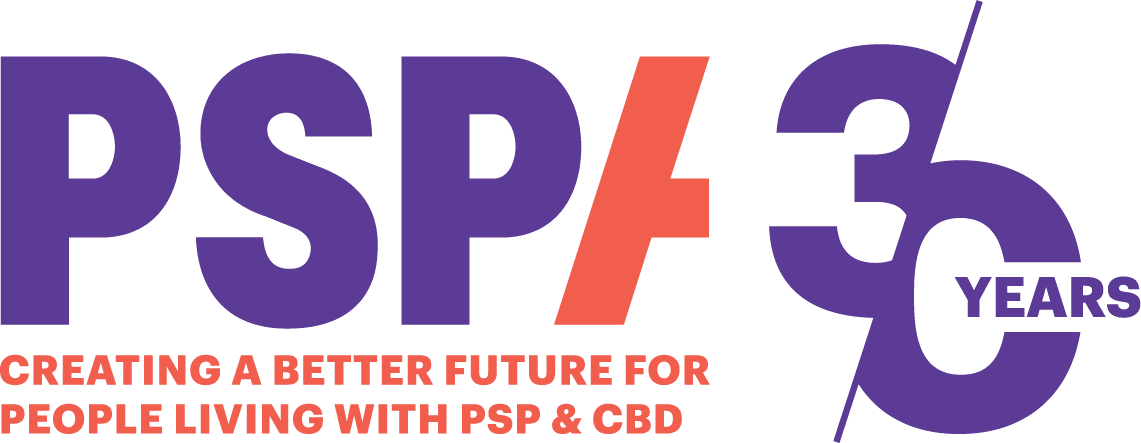Phyllis Rogers husband, Eddie, signed up to donate his brain soon after he was diagnosed with PSP. Here Phyllis shares her experience of PSP and the process of her husband donating his brain.
Eddie was easy going. He had a great sense of humour and worked really hard as a plumber and was hardly ever ill. He loved caravan holidays, we had one of our own, and were both looking forward to getting away more once Eddie retired.
Unfortunately, Eddie never really got to experience the retirement we’d looked forward to as he had to retire early due to him starting to have issues with the dexterity in his hands. That was the first sign something wasn’t right. This was followed by him slowing down in general. He walked slower, moved slower, had problems getting out of chairs and his voice got quieter.
Eddie was diagnosed with Parkinson’s and put on medication straight away. This didn’t seem to have any effect though and his symptoms kept progressing. His behaviour changed. He became apathetic. He lost interest in everything and everyone. And seemed to get focus on certain objects such as remote controls or buttons in cars. It was very unlike him. It was these changes that led to his PSP diagnosis.
I cared for Eddie at home and he seemed fairly stable for the first three years. In 2017, Eddie began to decline. He became impulsive and impatient. I found it hard to keep up with him. Once he’d got an idea into his head to get up or go somewhere, he’d be off, despite being unstable on his feet.
Eddie went into respite care in 2018. It was just for a few weeks but he ended up stopping longer to undergo some more assessments because he kept falling.
He moved into a care home in 2019 as his safety was becoming a big worry for me. His interest with buttons and switches was a particular worry, especially if we were in a car.
We got lots of information from PSPA, who we found using Google, and we passed this onto the care home to help them better understand PSP.
Eddie was falling out of bed so much, the care home staff had to have mattresses on the floor beside his bed. His speech was beginning to go at this point too but he always held onto my hand, often squeezing it. We tried different light writers to aid his communication, but he started to keep his finger on just one button so we gave up in the end.
During lockdown, Eddie sadly went downhill. The care home staff were great at trying to keep us in touch with him but due to his behaviour, video calls became increasingly difficult. He lost a lot of weight during this time. Although he still enjoyed his food, it took so long, around 45 minutes, for him to eat a meal and in the end, he was just surviving on a few spoonful’s each meal.
The care home was really great with Eddie and us as a family. We were able to spend his last week with him, sleeping in a spare room. We weren’t sure how much he could still comprehend at this point but we talked to him and played music.
Eddie signed up to donate his brain to research quite quickly after his PSP diagnosis. Dr Duncan referred him to Dr Diane Swallow at the University of Aberdeen. She visited our house and talked us through the process and how Eddie could help research into the condition. Eddie was really keen to progress research and help others, and we all supported this decision too. It’s such a rare condition, we wanted to do anything to help.
When Eddie entered the care home, we set up a care plan which included details of the brain donation, which really helped the process run smoothly.
Following Eddie’s death, the care home contacted the nurse at the brain bank, who in turn contacted me to check they were still OK to go ahead with the procedure.
A private ambulance came and took Eddie’s body away quite quickly and they removed his brain the next day. There were no additional costs or worries incurred by me and I was reassured that we wouldn’t be able to tell, should we wish to see him before his funeral.
During the post mortem on Eddie’s brain, they actually found he had CBD, not PSP. I was really surprised by this as I felt he symptoms ticked all of the PSP boxes. Dr Swallows rang me to tell me about their findings so I could ask her questions and get some explanations, which I found helpful.
As a family, we hope Eddie’s contribution to research helps people better understand PSP & CBD better in the future, and that maybe one day a treatment can be found.”

